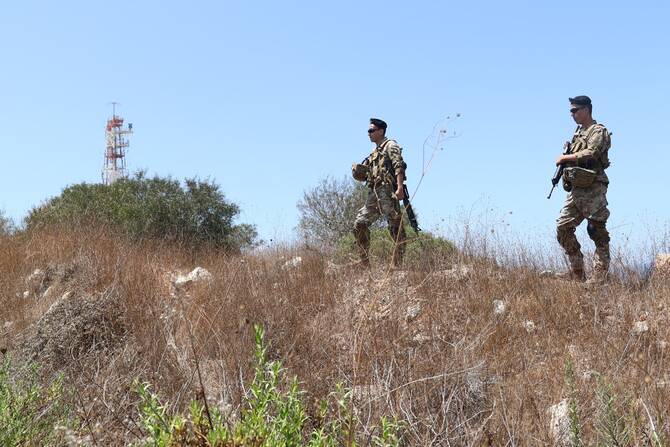DUBAI: Women’s empowerment in the Arab world has a bright future, if the findings of a YouGov study commissioned by Arab News for the Arab Strategy Forum are any guide.
Several recent regional developments — women driving in Saudi Arabia and an increase in the number of women holding ministerial roles in the Arab world — are viewed by substantial numbers of Arabs as positive.
A combined average of 61 percent said they expect to see more female empowerment in their home country over the next 10 years. This thinking was strongest in the Levant at 60 percent, followed by Gulf Cooperation Council (GCC) countries with 48 percent and 44 percent in North Africa.
The study surveyed 3,079 Arabic speakers, aged 18 years old and above, from across the Middle East and North Africa (MENA) region to better understand their current and future concerns on various topics.
June 24, 2018, will go down in history as the day Saudi Arabia lifted its longstanding ban on women driving. Two-thirds of the poll respondents actively supported the Kingdom’s new driving law, with only nine per cent expressing opposition.
Commenting on women’s standing in the MENA region, Maria Al-Qassimi, an Emirati writer, said recent decades had witnessed a movement led by Arab women to redefine social norms through a call for “equal opportunities and less restrictive laws.”
Despite the rapid speed of policy changes, Al-Qassimi says she wishes to see further progress in the standing of women in Arab societies.
#ArabStrategyForum: A majority of Iraqis and Lebanese believe religion is affecting their government's political decisions, and that separation of religion and politics would lead to less wars, suggests a YouGov pan-Arab poll. Watch the video for more of the survey results. pic.twitter.com/pPkHwcpB60
— Arab News (@arabnews) December 9, 2019
“I hope that policies and regulations will be revised to allow both men and women to strike a balance between their responsibilities and contributions both at home and at work,” she told Arab News.
Al-Qassimi believes that the situation of women and other “vulnerable” segments of society as of now is largely determined by economic factors.
If women continued to play an important role in driving Arab economies forward while demonstrating their “indispensability” on the global level, countries would have an incentive to enlarge women’s empowerment, she said.
Al-Qassimi said there was no doubt that governments around the Arab world were recognizing the need for women’s empowerment in building stronger economies and societies. However, a change in social attitudes may require more time.
Al-Qassimi cited the GCC states as a prime example of women’s excellent performance in almost every field. In the UAE, women make up 70 percent of all university graduates, and hold 66 percent of all public-sector jobs, she said.
In Saudi Arabia, the number of women working in the public and private sectors has increased by “282 percent” over the past year. “The hope is not only for women to occupy more leadership positions, but to push for more merit-based career advancements across the GCC,” Al-Qassimi said.
Women holding ministerial roles in the Arab region is a development that gained strong support from respondents, with 59 percent expressing positive sentiment, as opposed to 14 percent who were negative.
Among those expecting to see an even greater increase in the number of Arabs supporting women’s empowerment in the next two years is Injeel Firoz Moti, managing director at Catch Communications, an agency that works with female entrepreneurs in the UAE and across the GCC.
“One advancement I see taking place is the rise of more women in the workforce as well as growth of the female entrepreneur,” said Moti, who foresees more women taking up leadership roles and driving operations in the labor force.
Moti described women’s empowerment in Saudi Arabia, including the new driving law and the modification of the public dress code, as “setting a precedent” for further positive changes.
This was supported by the poll’s findings on a woman’s right to choose what to wear: 52 percent of respondents expressed positive sentiments.
Women of the Arab world have made great strides in breaking away from “centuries-old gender norms and traditions,” one of which is freedom of appearance, according to Al-Qassimi.
“What women wear is unfortunately not a physical representation and expression of who they are, but of the honor and chastity of their immediate and extended families,” she said.
The poll also showed 24 percent of respondents selected one of two options — “prefer not to answer” or “neither agree or disagree” — when asked about the topic of women’s clothing.
Al-Qassimi said some Arab societies “respond to emotions of fear and shame,” which she believes could be the reason many respondents in the survey disagreed with the freedom of appearance or chose not to give an opinion.
Other questions in the survey dealt with topics such as forced marriage and honor crimes. The findings suggest that 77 percent of the Arab world disagree with the practice of forced marriage, with 67 percent of respondents strongly opposed to it.
“Given the rate at which our societies are evolving, with time more value will hopefully be given to the individual and the choices he or she makes,” Al-Qassimi said.


























